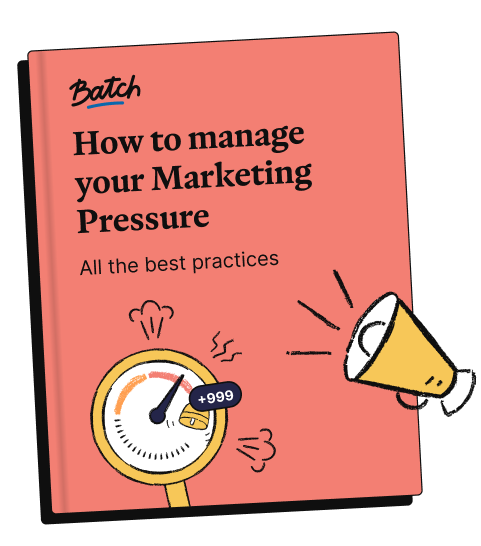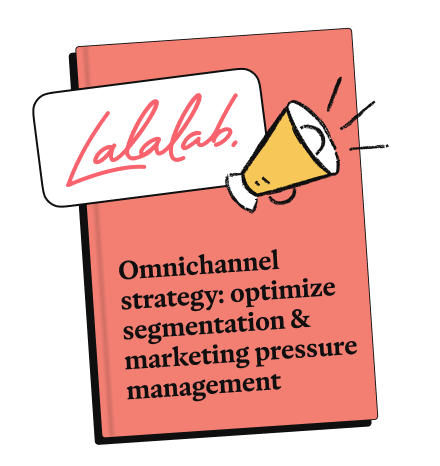It’s a jungle out there when it comes to the market for omni-channel CRM solutions. Finding the perfect fit for your needs can be challenging because you need to review each key feature on offer. Are you looking for a turnkey solution? A solution that will give you a single view of all your campaigns? If so, our checklist will help you.
Single customer view (SCV): a must-have for CRM solutions
Without a doubt, the number one feature you need for your future CRM solution is the customer data platform. This tool collects and aggregates all types of data from multiple sources, particularly:
- registered information, collected via forms, for example;
- inferred data that can be generated from business intelligence tools;
- tracking data, such as clicks or visits.
Using this data, you will have a single view for each customer. Your marketing teams can see customer behaviours on your website, app or any other digital channel. You can also see how many times they interact, the duration, and their frequency.
Before choosing your CRM solution, you must make sure that it can centralise and reconcile data from several sources. Your chosen solution must also enable data storage so that you can use the data for your marketing campaigns.
Case in point
Some CRM solutions have strict data volume limits (or will make you pay the price to lift them). Others may have long lead times for data ingestion and availability. So watch out for that.
The last point, and no small matter at that, is that your CRM solution must be able to handle anonymous profiles and known profiles. With this feature, you can address these unknown profiles. For example, there’ll be no duplicates when creating accounts, as it can manage the switch from an anonymous profile to a known one.
Optimise your CRM solution with powerful messaging capabilities
Don’t underestimate the importance of text messaging capabilities in your CRM solution. They will create close ties with your customers and prospects. The tool you choose must have advanced customisation features and ensure a high degree of deliverability. Here’s why.
Don’t compromise when it comes to your channels: choose a CRM solution that meets all your needs
Make sure that the solution you are interested in can handle all key channels in your marketing strategy. That way, you’ll avoid silos. Ask yourself the following questions:
- How do I communicate with my customers? Push notifications, web push notifications, in-app messages, emails, SMS, etc.
- Which omni-channel scenarios am I interested in? Send to a favourite channel, send a push notification, then send an SMS if no reaction, etc.
Some solutions tick all the right boxes for some channels, but they don’t cover them in full. For example, there are silent push notifications, an option to send information to an app without a visible notification. While some CRM solutions make this easy, others don’t. Remember to check.
There’s no point in marketing if you don’t customise
Customisation is a crucial factor at the very heart of all good marketing strategies as it helps create solid relations with your customers. Customisation improves the user experience (UX) and yields better results. You will quickly see the impacts of a customisation strategy on sales and the quality of your customer relations.
Your CRM solution must have user segmentation capabilities based on all the data in the databases, in particular:
- behaviour data — purchase frequency, recent visits, ticket opened with support, and so on.;
- socio-demographic — age, gender, size, place of residence, etc.;
- preferences data — subscription to certain alerts, specific content, a choice brand, a favourite topic added, and so on.
CRM software packages provide customisation fields to customise your campaigns by inserting specific information in emails, SMS messages, push notifications and so on. For example, you can address your customer by their first name and suggest similar products based on their previous purchase. You can also add conditional content based on whether they belong to customer segments or manage multilingual messages.
Of course, all these customisation features must be tested before sending via testing strategies (A/B testing, multivariate testing, and so on) and control strategies so you can make the right content choices. All this, in the name of a better customer experience.
Manage your marketing pressure across all your channels!
Develop customer engagement by maintaining a good balance in your communications

Do not underestimate the value of deliverability
The first aspect of deliverability is a solution’s ability to send large volumes of messages without a lag. This is crucial. You don’t want an email about the launch of your private sale to reach your customer and prospect inboxes late. Your solution must be able to send quickly and properly.
Deliverability also encompasses the arrival of messages— particularly emails — in target recipients’ inboxes. In concrete terms, the aim is to prevent your emails from ending up in your customers’ spam mail. There is a severe risk of being considered a spammer when you send too many emails in one go. There are many good practices you can follow to avoid this from happening. Your CRM solution must help you overcome these issues and adjust your emails accordingly.
Integrated orchestration: a key part of a quality CRM solution
The ability to orchestrate relies on the fact that the CRM solution lets users create different types of campaigns on their own using a huge range of customer data (just as a conductor of an orchestra would). To do so, there are several types of orchestration:
#1 One-shot and repeat messages
Sending messages to a given segment at a given time is a basic but vital feature. It allows you to send a message to one or several channels in parallel (email, app push notifications, SMS, and so on). There are two ways to do so:
- One-shot messages — for a very specific, one-off campaign;
- Repeat messages — to send a reminder message for a subscription that is about to expire, for example.
#2 Automated messages following certain events
Do you need to define important events in the purchase process? Like when a customer hasn’t completed a transaction after visiting your website? Automatically sending one or several messages inviting them to complete the order is the most suitable solution.
The plus side of automated messages is that they are sent to the right person for a specific event. As such, the message is relevant, targeted, and sent at the right time.
However, you shouldn’t underestimate the risks. Some marketers may feel they’ve lost control. That’s why it’s important the CRM solution you choose offers means of control such as:
- Capping: technique that limits the number of messages the same person can receive;
- Grace period: means you can handle the minimum time between receiving two messages;
- Timer: manages the time between the event occurring and the message being sent or between several messages;
- Conditions: you decide upon the next best action in a series of messages that have been sent based on profile or algorithm data.
We recommend you pay particular attention to ease of use for all these aspects. After all, while event-driven sending is very effective, it can quickly become difficult to manage.
How does Lalalab optimize its segmentation and marketing pressure management?

#3 Transactional messages
A transactional message is a non-marketing message sent automatically immediately after a specific action, such as a purchase.
Third parties often handle them, but here at Batch, we think that all messages sent (including transactional ones) should be managed from a single omni-channel platform for consistency.
It is not uncommon for transactional messages to differ from marketing messages in terms of design. By centralising, you can also continue to have an overall view and avoid the risk of overloading, which is a frequent problem.
Spotlight on API and developer experience (DX)
The use of application programming interfaces (API) is a real plus when orchestrating your marketing automation campaigns. They enable automated communications and data exchanges between the different apps and systems used as part of your campaigns.
They can also manage your campaigns without having to go via the interface.
That’s why it is crucial your CRM solution is not a standalone feature. It must have robust APIs, be easy to use for technical staff, and have a broad ecosystem of partners.
Performance measurements: processing your results with your CRM
There is one last important point you need to measure the results of your actions: your CRM solution must enable you to analyse several performance indicators by taking into account all the channels you use. It must also be capable of transferring this data to a third-party analysis system (such as business intelligence tools) to facilitate fine reporting.
Protect your data
You shouldn’t just take functional criteria into account when choosing your CRM solution. Your data security is also a priority. These solutions store a great array of sensitive data, such as dates of birth and purchase history. Therefore, it is essential you:
- Guarantee a high level of security with strict access controls to such information;
- Pay attention to the location of data and the data hosting service.
Your CRM solution must also be in line with your stance on data protection and comply with the applicable rules in your country. For example, in the EU, the General Data Protection Regulation (GDPR) imposes strict norms in terms of data confidentiality. Make sure the solution you choose addresses these requirements.
Batch, the omni-channel CRM platform! An all-in-one enterprise-ready solution to easily create customer journeys that convert and provide your customers with a fully customised experience.
Mickael Bentz
Head of Product Management @ Batch